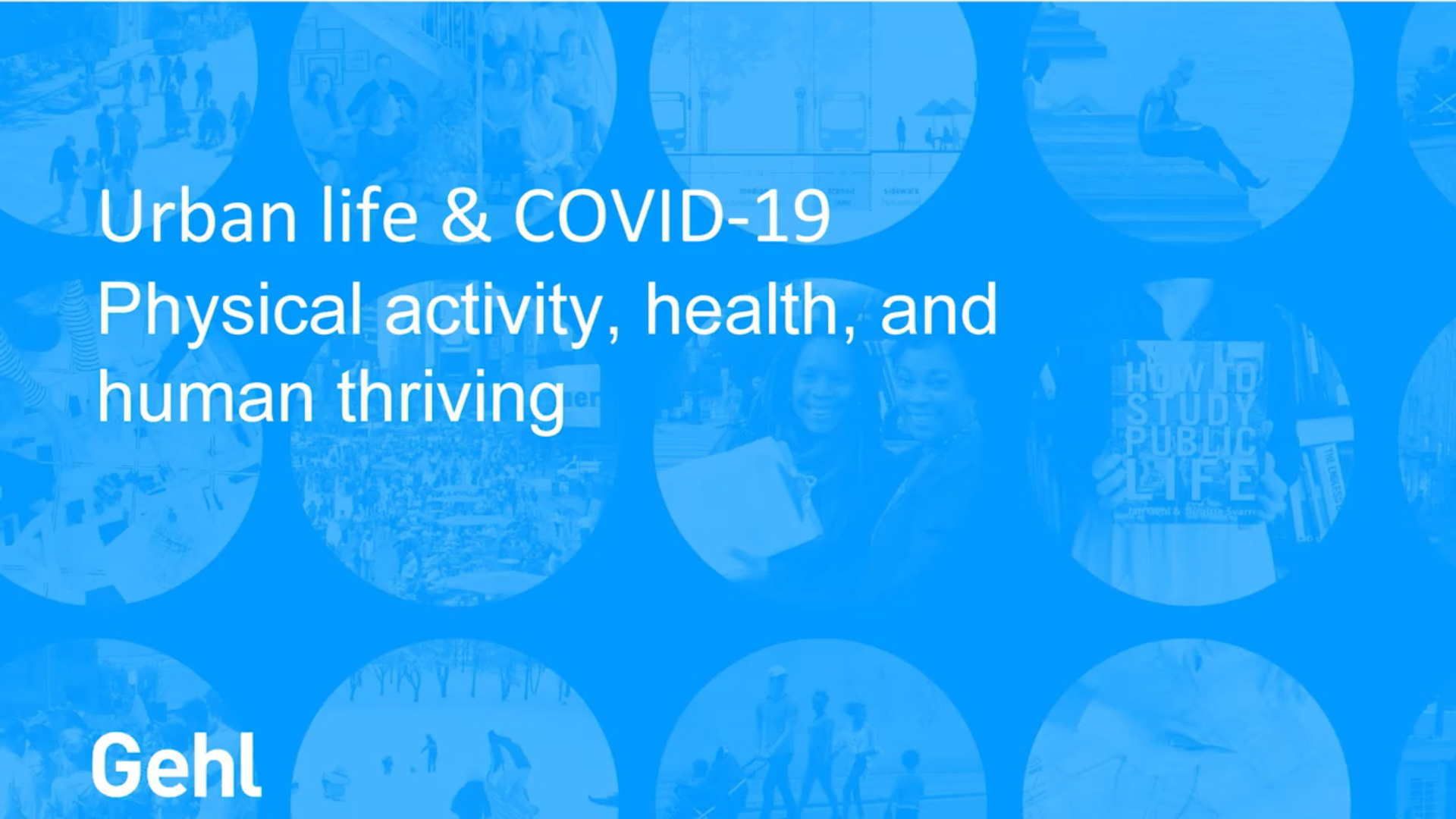Urban Life & Covid-19: Physical Activity, Health and Human Thriving
15/7/2020By Maria Malyshkina, ISCA

How can we use a crisis to transform our experience? Urban designers and strategists from Gehl, an institute whose motto is “making cities for people”, believe that collecting data on human behaviour in cities during and after lockdown can help us understand the needs of societies and use them to build future strategies for urban development.
In his presentation for our MOVE Week webinar “Public space and physical activity during and after COVID-19”, Jeff Risom presents valuable findings from research conducted by Gehl during the pandemic. Gehl collected data about activity in cities during and after the lockdowns, studying how public spaces were used, who used them and why.
A worldwide survey of 2,000 respondents showed that “people are using their neighbourhood streets, sidewalks and parks most of all”, and the top reasons to go outside were for exercise and relaxation. A study of the public life during the lockdowns in several Danish cities identified new outdoor activities (such as skateboarding in fountains or typically busy main streets) and new user groups with more children and elderly using the streets than before.
However, life in a COVID-19 reality, even as the cities start to re-open, is still quite unpredictable which can make people feel stressed about using outdoors. As Jeff points out, “we need to invite people back in the streets”, and the collected data can be useful for making decisions on how to help people get back to normal for the re-opening phase and in long-term perspective as well.
We at ISCA believe that cities belong to people, too, and have created initiatives like the Open Streets Day when public streets and urban areas of European cities are transformed into venues for recreational physical activity. Another initiative is the MOVEment Spaces platform designed to promote and enhance facilities for physical activity in urban spaces. If you want to learn more about opportunities to deliver physical activities in urban spaces and create a positive social impact, find our free online course.
